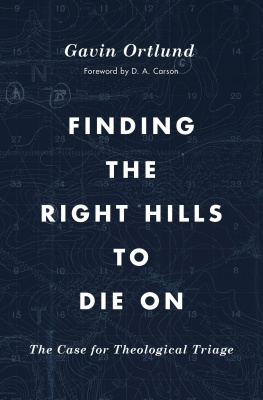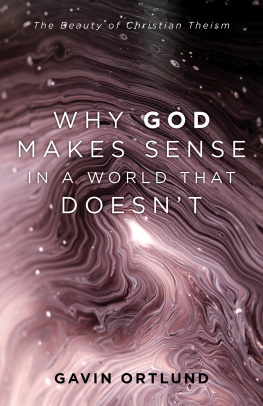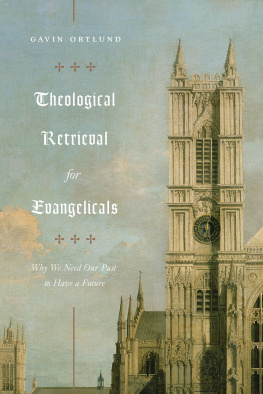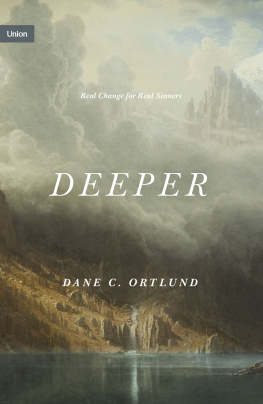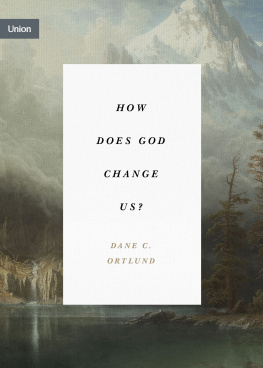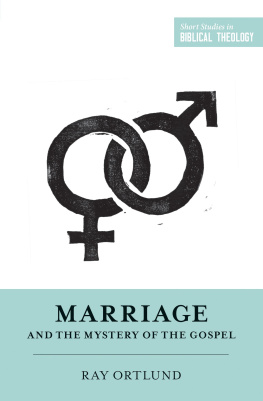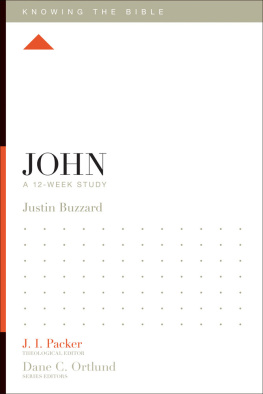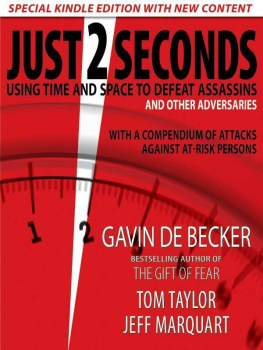Gavin Ortlund - Finding the Right Hills to Die On: The Case for Theological Triage
Here you can read online Gavin Ortlund - Finding the Right Hills to Die On: The Case for Theological Triage full text of the book (entire story) in english for free. Download pdf and epub, get meaning, cover and reviews about this ebook. year: 2020, publisher: Crossway, genre: Religion. Description of the work, (preface) as well as reviews are available. Best literature library LitArk.com created for fans of good reading and offers a wide selection of genres:
Romance novel
Science fiction
Adventure
Detective
Science
History
Home and family
Prose
Art
Politics
Computer
Non-fiction
Religion
Business
Children
Humor
Choose a favorite category and find really read worthwhile books. Enjoy immersion in the world of imagination, feel the emotions of the characters or learn something new for yourself, make an fascinating discovery.
- Book:Finding the Right Hills to Die On: The Case for Theological Triage
- Author:
- Publisher:Crossway
- Genre:
- Year:2020
- Rating:3 / 5
- Favourites:Add to favourites
- Your mark:
- 60
- 1
- 2
- 3
- 4
- 5
Finding the Right Hills to Die On: The Case for Theological Triage: summary, description and annotation
We offer to read an annotation, description, summary or preface (depends on what the author of the book "Finding the Right Hills to Die On: The Case for Theological Triage" wrote himself). If you haven't found the necessary information about the book — write in the comments, we will try to find it.
Gavin Ortlund: author's other books
Who wrote Finding the Right Hills to Die On: The Case for Theological Triage? Find out the surname, the name of the author of the book and a list of all author's works by series.
Finding the Right Hills to Die On: The Case for Theological Triage — read online for free the complete book (whole text) full work
Below is the text of the book, divided by pages. System saving the place of the last page read, allows you to conveniently read the book "Finding the Right Hills to Die On: The Case for Theological Triage" online for free, without having to search again every time where you left off. Put a bookmark, and you can go to the page where you finished reading at any time.
Font size:
Interval:
Bookmark:
A timely and well-written book on a vitally important subject. Ortlund reminds us that Christian theologians must see themselves first and foremost as servants of the Great Commission. He shows us how much of the Christian academy has been divorced from the gospel mission. The Bible is a theological, pastoral, and evangelistic bookand those must never be separated, lest one become malformed. I am immediately using this book with our elder and pastoral team!
J. D. Greear, President, Southern Baptist Convention; author, Not God Enough ; Pastor, The Summit Church, Raleigh-Durham, North Carolina
Gavin Ortlund is a scholar and leader who both wields the sword of the Spirit and exhibits the fruit of the Spirit. He not only stands up for Jesus but also stands with him in love, holiness, and mission. In a sadly contentious time, this book shows us how to love each other and stay on mission together even when we see some nonessential doctrines in different ways. This is a wise and needed book.
Russell Moore, President, The Ethics & Religious Liberty Commission of the Southern Baptist Convention
To put it simply: this is an important book. With a historians insight, a theologians precision, and a pastors wisdom, Gavin Ortlund has given the church an invaluable handbook for navigating our ongoing doctrinal challenges and for healing our ongoing doctrinal divisions.
Jared C. Wilson, Assistant Professor of Pastoral Ministry, Spurgeon College; Author in Residence, Midwestern Baptist Theological Seminary; author, The Imperfect Disciple
Some seem to think that faithfulness to God is measured in how much we argue about things. I am so grateful for Gavin Ortlunds book, which reminds us that faithfulness can be defined in far more biblical ways. Ortlund does not pretend that he has the answers to end all church arguments, but he helps us understand that failure to distinguish critical matters from secondary and tertiary concerns is an abandonment of the pastoral prudence that is essential to Christs mission. Even Jesus said, I still have many things to say to you, but you cannot bear them now. For pastors operating with the care and courage of Jesus , patience is not compromise, kindness is not weakness, and Christs mission supersedes our personal victories. Ortlund honors Christs manner as well as his message in this fascinating and challenging book.
Bryan Chapell, Pastor, Grace Presbyterian Church, Peoria, Illinois
There are few needs today as urgent as the one Gavin Ortlund so ably addresses in this wonderful book. Healthy theological perspective and poise are all too absent in an age of immediate escalation and rage. This book could transform our thinking, our capacity for fellowship, and our witness to the world. I pray it is read widely and heeded deeply.
Sam Allberry, Speaker, Ravi Zacharias International Ministries; author, Why Does God Care Who I Sleep With? and 7 Myths about Singleness
Gavin Ortlund helps us think well as brothers and sisters in Christ on where we must staunchly defend the truth and draw immovable lines. He also helps us know where to extend grace and lovingly disagree while working together for the fulfillment of the Great Commission and the building up of the Lords church. This book is much needed in our day. May our Savior use it for our good and his glory.
Daniel L. Akin, President, Southeastern Baptist Theological Seminary
In this age of theological infighting and compromise, Gavin Ortlund issues a clarion call for wisdom. You dont have to agree with him on everything to appreciate his sane and clarifying advice. This is an important book for our time, helping the church as we struggle for both faithfulness to Gods word and a proper Christian unity.
Michael Reeves, President and Professor of Theology, Union School of Theology, Oxford, United Kingdom
As best I can tell, this is the first book of its kind and is long overdue. Gavin Ortlund has done the church a tremendous service by providing a clear, irenic, and well-reasoned (not to mention biblical) perspective on the comparative importance of our many Christian doctrines. Some in the church today have waged vigorous war and died needlessly on virtually every hill, while others, in the name of unity, dont find any hill worth dying on. To both, and to everyone in between the two extremes, I say, Read this book!
Sam Storms, Senior Pastor, Bridgeway Church, Oklahoma City, Oklahoma
In both war and theology, there are battles to avoid. Just as we can be ineffective because of compromise or inertia, so too we can be ineffective because of impulsiveness or haste. In fact, I would suggest that a wise theologian, like a wise military general, will be characterized by patience far more frequently than by action. Most of the battles you could fight, you shouldnt. And Id go so far as to say that the majority of doctrinal fights Christians have today tend to be over third-rank issuesor fourth. We deeply need to cultivate greater doctrinal forbearance, composure, and resilience.
In this chapter Ill propose two doctrinal disputes as examples of this need: the creation days of Genesis 1 and the nature of the millennium in Revelation 20. Christians often divide from one another over how to interpret these passages at the beginning and end of the Bible. This chapter suggests that we should not divide, at any level, over these two issues.
This is not to say that everything related to protology (first things) and eschatology (last things) is third rank. These areas contain a variety of first-rank doctrines, such as creation ex nihilo (from nothing) or the bodily nature of Christs second coming.
But it is a historical irony that American evangelicals have tended to divide over the peripheral aspects of creation and eschatology while ignoring the more central aspects of these doctrines. Thus, many evangelicals focus more on the timing of the rapture, the identity of the anti-Christ, and the nature of the millennium (all, in my view, third-rank doctrines) than they do on the second coming of Christ, the final resurrection, or the final judgment (all, in my view, first-rank doctrines). Similarly, many evangelicals are intimately familiar with the creation wars but have never given any sustained reflection to more basic questions about the goodness and contingency of creation, on which the early church expended so much energy, and which are vital to a Christian worldview.
Fighting over tertiary issues is unhelpful. But fighting over tertiary issues while simultaneously neglecting primary issues is even worse. So here we will engage these two issues to illustrate where we can benefit from critical reflection on our doctrinal priorities.
Why Christians Shouldnt Divide over the Millennium
We begin at the end. The millennium of Revelation
Or consider the early years of postmillennialism would have been viewed!
The scene is different today. Many denominations and churches have loosened their requirements on this issue and allow for a variety of views.
I think the role that the millennium has played in dividing evangelicals is unfortunate. Here I offer three reasons why I think we should not divide, in any context, over differences regarding the millenniuma biblical, practical, and historical argument.
First, biblically, the millennium is explicitly taught in only one passage, and it is a notoriously difficult passage to interpret, coming in perhaps the most difficult book of the New Testament. This distinguishes the millennium from doctrines that result from the convergence of biblical claims or the development of a particular theme or motif throughout the Bible. Of course, premillennialists claim that the millennium is suggested or implied in other parts of the Bible, and all millennial views involve argumentation from a combination of texts and considerations. But it seems difficult to deny that the primary passage at playthe only one that actually mentions a millenniumis Revelation 20:16. It is questionable whether premillennialism would exist if Revelation 20 did not.
Font size:
Interval:
Bookmark:
Similar books «Finding the Right Hills to Die On: The Case for Theological Triage»
Look at similar books to Finding the Right Hills to Die On: The Case for Theological Triage. We have selected literature similar in name and meaning in the hope of providing readers with more options to find new, interesting, not yet read works.
Discussion, reviews of the book Finding the Right Hills to Die On: The Case for Theological Triage and just readers' own opinions. Leave your comments, write what you think about the work, its meaning or the main characters. Specify what exactly you liked and what you didn't like, and why you think so.

